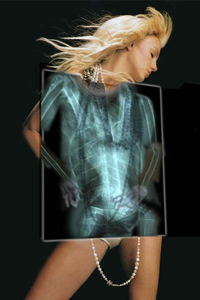 Health screenings are important at every stage of your life and an important part of maintaining a work-life balance.
Health screenings are important at every stage of your life and an important part of maintaining a work-life balance.
Having scheduled health screenings is a great way to feel like we have some control over our bodies. So many health problems depend on early detection for effective treatment, including cancer, heart disease, and many autoimmune diseases. Here are the health screenings, check ups and exams you should have at various stages of your life.
Health checks in your 20s
You’re in the prime of your life, and the last thing on your mind is health problems. And that is exactly why health screenings are so important.
In our 20s, we’re placing our bodies under a lot of stress – from partying, overwork and sometimes pregnancy.
The health checks that most 20-30 year-olds should have include:
- Blood pressure checks: High blood pressure is a risk factor in the development of heart disease, and stress, carrying excess weight and being inactive can all contribute to high blood pressure.
- Bloodwork: Your blood should be screened yearly for glucose levels (an indicator of diabetes), cholesterol levels, levels of thyroid hormone and electrolytes (abnormal levels can indicate kidney function problems).
- Pap smears: Women who smoke or take the contraceptive pill should be especially vigilant about these health screenings, but all women should try to get a Pap smear done bi-yearly.
- Dental check and clean: You should have your teeth professionally cleaned and checked annually for early signs of decay.
- STI screenings: Sexually active adults should be screened by STIs, especially diseases which show no symptoms like Chlamydia, every year.
- Weight assessment: Sometimes it is difficult to know whether you are in a healthy range or not.
Health checks in your 30s
Those first grey hairs and a face that isn’t quite as bouncy as it once was often force us to think more about the condition of our bodies. Most of us are still at relatively low risk for many diseases, but you should get health screenings and check ups in your 30s like:
- Regular screenings: Just the same as you have been doing in your 20s, go for a yearly bloodwork, weight check, blood pressure check, dental check, and a 3-yearly Pap smear (if you have the bits required to test!).
- Depression screenings: If you consistently have trouble concentrating and don’t find anything to look forward to in life, be screened for depression.
- Skin cancer checks: It can be hard to identify, and your 30s are a common decade for skin cancer diagnosis.
Health checks in your 40s
In your 40s, the life distractions of kids and a career in full swing often put your health on the backburner. Even if you do little else, though, make sure you get the following health screenings:
- Your regular health screenings: The same one you were getting in your 20s and 30s are still important.
- EKG: An electrocardiogram should be done yearly; measuring your heart’s electrical activity can warn of arrhythmia and impending heart attack.
- Fecal occult blood tests: This health screening, though it can be embarrassing, is better than dying of fairly common colorectal cancer.
Health checks in your 50s and later
In many ways, people over 50 feel like they’ve hit a second prime. You’re at full earning capacity, and may even be unfettered by your darling children, as many of them will have moved out by this stage. Keep it positive in your 50s by getting the following health screenings.
- Regular health checks: Keep going with those.
- Bone density checks: To screen for early signs of osteoporosis
- Prostate exams: For men over age 50
- Mammograms: For women over age 50. These are offered free at periodic clinics around Australia.
- Vision and hearing checks: Deteriorating vision and hearing shouldn’t be a normal part of life in your 50s – have them checked regularly.
In addition, immunisations are important to maintain at all ages. Ask your doctor which shots are appropriate for you – most adults get a flu shot every year, tetanus booster every 10 years, and a pneumococcal shot every so often.
Health screenings take time – but they definitely free you from worry! Remember prevention is definitely better than cure and the quicker you are diagnosed for a potential problem, the quicker it can be treated. Doctors love to see people being proactive – so book a general health screening appointment today.
